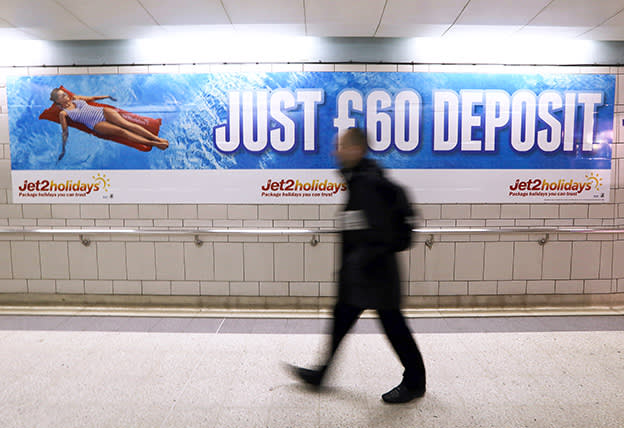
- China’s reopening, pent-up demand and stocks of savings could see demand for holidays rise in 2023
- But with holiday demand sensitive to falling incomes, a darkening economic outlook could stop travel
With strikes, bad weather, and ‘Blue Monday’ fast approaching, you could be forgiven for daydreaming about a holiday. For the UK, tourism is serious business. According to the ONS, it contributed £127bn annually to the economy before the pandemic struck, and directly created 1.7mn jobs. With a downbeat outlook for hospitality, and Bank of England projections warning of a “steadily rising unemployment rate” the economic benefits of a tourism boost shouldn’t be underestimated.
Could the time be ripe for a holiday renaissance? A November 2022 report from the United Nations World Tourism Organization (UNWTO) found that tourism had recovered to 65 per cent of pre-pandemic levels as travel restrictions continued to lift. China’s eventual reopening could prove a further boon. Chinese tourists were the biggest outbound tourist market in 2019, spending $257.9bn (£217.48bn) on outbound travel – more than twice as much as their US counterparts.
Then there is pent-up demand: after years of restrictions, there is some evidence that consumers are desperate for a holiday fix. Data from analytics group Airdna found that the average nightly rates in the UK are now £171 – up 47 per cent from 2019. The platform argues that some of the upswing is down to larger groups travelling together, but is partially attributable to “revenge travel”, which has seen guests “willing to spend a bit more for luxurious stays after so many months without vacations”.
But therein lies the problem: in economic terms, holidays are luxury goods. This has less to do with the number of stars a hotel has, and more to do with the fact that holidays are easy to cut back on. This means that demand tends to swing exaggeratedly as incomes change.
With recession on the horizon in the US and eurozone (the UK’s biggest inbound tourist markets), this could be bad news for the UK tourism industry. 2006 government research into elasticities in the holiday market found that a 1 per cent decrease in gross domestic product (GDP) in these source markets led to a 1.65 per cent decrease in tourism expenditure in the UK.
Evidence suggests that holidaymakers are sensitive to the price of holidays, too. The weak pound may have made the UK a more attractive destination to foreign holidaymakers, but it rendered overseas holidays eyebrow-raisingly expensive for us. According to forecasts from ING, the pound will remain weak into this year, dipping to $1.10 and 1.12 against the euro by the end of Q1.
This could see holidaymakers swap trips abroad for staycations: the same research found that as foreign tourism became more expensive, domestic tourism saw demand increase. In the absence of a significant “revenge spending” upswing, a weak pound could spell bad news for overseas-focused holiday operators such as Saga (SAGA), On the Beach Group (OTB) and easyJet (EZJ).
But could it at least spell good news for the (surprisingly large) domestic tourism industry? Accommodation and hospitality would stand to benefit from it: according to Office for National Statistics (ONS) ‘tourism ratio’ calculations, 76.5 and 21.2 per cent of the activity in these industries can be attributed solely to tourism.
But evidence suggests that domestic holiday demand could prove highly sensitive to the economic gloom approaching. Demand for domestic holidays has been shown to be price sensitive, falling substantially when holiday prices rise faster than those of other goods and services in the economy. Airdna data suggests that UK nightly rates increased by an inflation-busting 17 per cent last year, meaning that consumers may be inclined to cut back.
Elasticities research also shows that domestic tourism spending is highly sensitive to changes in household income. This is bad news when economists at Pantheon Macroeconomics forecast that real disposable income will decrease by 2 per cent this year. Consumers may be sitting on a stack of pandemic savings, but they might be unlikely to use them for a getaway: Pantheon Macroeconomics argues that households now face a growing list of reasons to “remain cautious” in their spending.
Travel restrictions have finally eased, but it looks as though the economy could ground holidaymakers this year.







